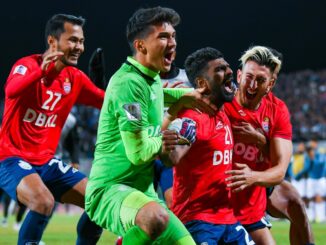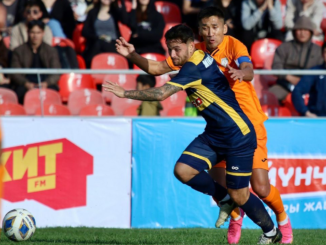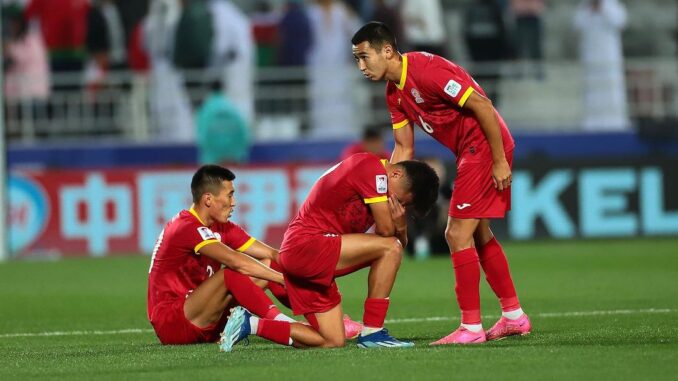
After two weeks of relentless international competition, the AFC Asian Cup 2023 has reached its knockout phase.
Unlike five years ago, however, Kyrgyzstan will not feature as one of the last 16, after a 1-1 draw with Oman denied their hopes of progressing via the back door.
While such a binary assessment of development doesn’t always provide the fullest of pictures, in follow up to their first-ever qualification for the continental championships back in 2019, their results in Qatar were always going to provide an immediate indication of the nation’s footballing direction.
In some ways, both campaigns were pretty similar. After two defeats from their opening two matches, on both occasions they knew they needed to win in the final match, and in yesterday’s case, they already knew by how many, to put themselves in the progression picture.
While five years ago they became the late shock of the group stage, putting Philippines to the sword 3-1 in Dubai, this time around a meagre 1-1 draw with Oman saw a premature exit for the Central Asian nation.
Results are arguably debatable in comparison over such a short international tournament, but performance, and the manner of their approach is another thing. This is where the 2023 campaign has somewhat taken a backwards step from the momentum gained over the last ten years.
Aleksandr Krestinin, the Russian former coach of the Kyrgyz national team for nearly a decade, had evolved a footballing backwater into a plucky underdog, unafraid of pushing their superiors, playing aggressive, optimistic football, all the while developing young talent from the bottom up.
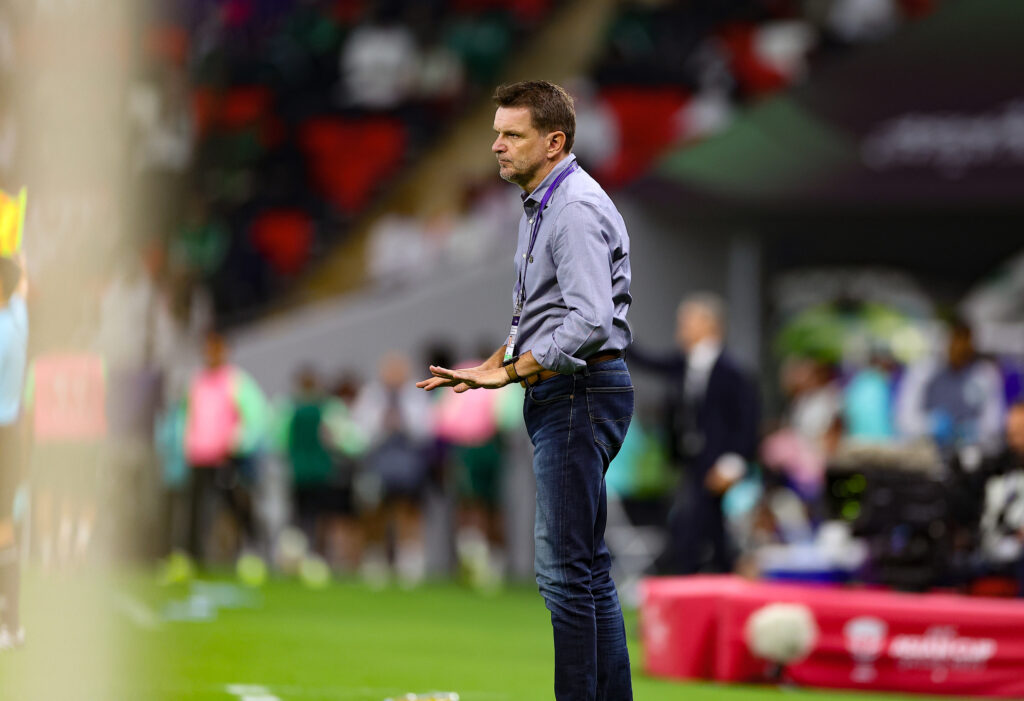
Krestinin moved away from a once physical, one-dimensional, pre-independence style of football that Kyrgyzstan, and Central Asia more generally had become known for, to a new future; and with it helped progress the first forays of their domestically grown talent into mainland European football.
Following qualification to their second Asian Cup, growing pains, squad evolution troubles and, in hindsight, inflated expectations put pay to Krestinin’s historical tenure; one that most hoped would serve to be the foundations of greater things to come.
His successor, Stefan Tarkovic, a typically unassuming coach, despite his initial maverick arrival on the sidelines for the CAFA Nations Cup, has rarely given much away in his nine months in charge, but has repeatedly stressed his mandate to rebuild for the medium term around the next generation of talent.
What a way, to dampen expectations ahead of the Asian Cup.
The squad has admittedly been hit by setbacks; national captain Valery Kichin withdrew before the initial squad selection, while ball playing midfielders Erbol Atabaev and Alimardon Shukurov both picked up tournament ending injuries in their early training camps.
The persistence to include the latter in the tournament’s final selection, considering his severely doubtful prognosis, was probably a sign of the lacking quality Kyrgyzstan had, especially in such a creative area of the pitch.
There was also mitigations to be had in attack; Mirlan Murzayev, the national goalscoring record holder, who featured in the success of 2019, was surprisingly left out at the last minute, in favour of the next generation, led by newly nationalised and Ghanian-born Joel Kojo.
Squad omissions aside, the approach taken by Tarkovic was reserved to say the least. Impotent and cautious against Thailand, despite a bright opening 20 minutes, ultra-defensive and defeatist from the outset against Saudi Arabia, which wasn’t aided by an early red card, and surprisingly nervy and non-committal in their must win match against Oman.
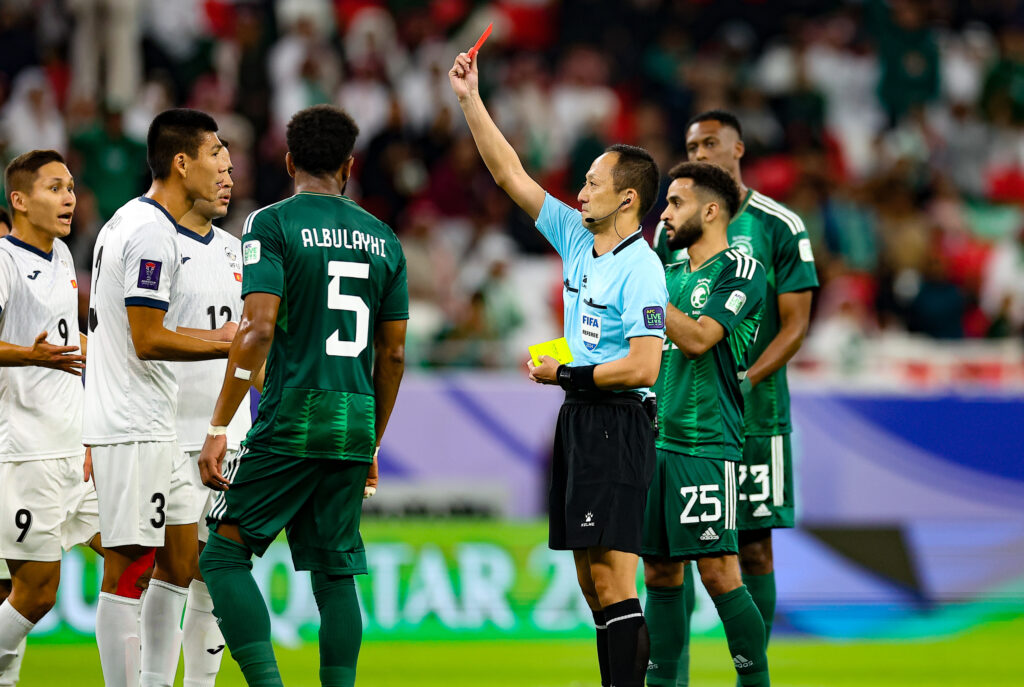
On all three occasions, hope was extinguished by an early setback. Thailand’s opener forced retreat rather than reaction, Ayzar Akmatov’s early red card against the Saudis led to a more defensive tactical switch, while their sloppy concession to Oman within 10 minutes sparked little positive reaction.
On the final day, Kyrgyzstan knew they had progression in their hands, needing a victory by two clear goals to progress to the knockouts; a difficult task having not registered a goal prior to that point, but a situation that required a certain gear shift in assertiveness.
While Tarkovic may have fielded two strikers from the start; a formation featuring a back five and two defensive anchors wasn’t exactly the approach Kyrgyz fans would have hoped for when searching for goals.
Three centre backs has been in particular favour these last two weeks, unfortunately more common with those who’ve tended to set up in reactionary terms, yet a fully-fledged approach is more in the execution and the personnel it includes than it is in the initial field position.
Back in 2019, Krestinin set up in the same formation ahead of their must win match with the Philippines; starting similarly with two central strikers (the aforementioned Murzayev and flash in the pan striker Vitaly Lux).
Yet, the coach crucially supported them, with two attack minded midfielders, and two converted wingers out wide in Kayrat Zhyrgalbek uulu and Bekzhan Sagynbayev.
Aptly, five years later, given the significance of the match, and the need to attack, those same attacking options were left on the bench, in place of the more defensively minded pairing of Aleksandr Mishchenko and Suyuntbek Mamyraliev.
The intentions were poles apart, so it’s not a surprise that the results were, too.
It could well be argued that Tarkovic fell foul of a group stage format that seeks to reward pragmatism over adventure.
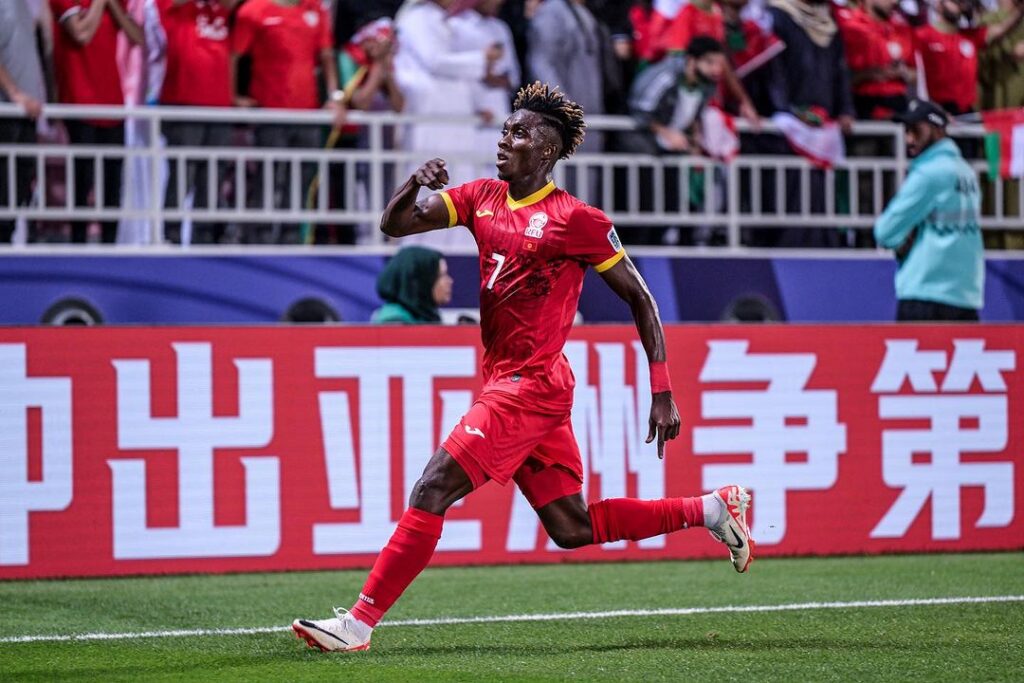
While we derided China’s woeful tournament earlier this week that didn’t achieve a single goal for its troubles, if they hadn’t conceded a second half wonder strike from Qatar’s Hassan Al-Haydos, they’d have somehow progressed as one of the lucky losers.
Goal difference is invariably becoming the key variance between nations aspiring to make the knockout stages at the Asian Cup. Expansion was intended to develop the next layer of Asian football; if it then promotes more cautious, ‘keep the score down’ tactical approaches, there is a serious need to re-evaluate this route moving forward.
Fortunately, while Oman and Kyrgyzstan both opted for caution over aggression in search of progression, they both ended up blocking one another from it; through an equaliser gifted to the otherwise unsupported Kojo, courtesy of an untypically frantic piece of defending by Khalid Al-Braiki.
Both exit with some soul searching to do. Oman will do so under a new coach, following Branko Ivankovic’s departure, Kyrgyzstan under a cloud of disappointment.
They’ll conveniently regroup with one another over the next six months, as the early round of World Cup qualification for 2026 concludes – an immediate time limit for Tarkovic to refocus on his “rebuild” remit that could well be derailed by the time summer rolls around.
As one Kyrgyz journalist put it to his national coach ahead of their match with Oman: “How does it feel to be the worst team at the Asian Cup?”
We can only hope that this question is pinned up somewhere in his office, as Kyrgyzstan head back to Bishkek with their tail between their legs.
Photos: Kyrgyz Football Union / Asian Football Confederation


